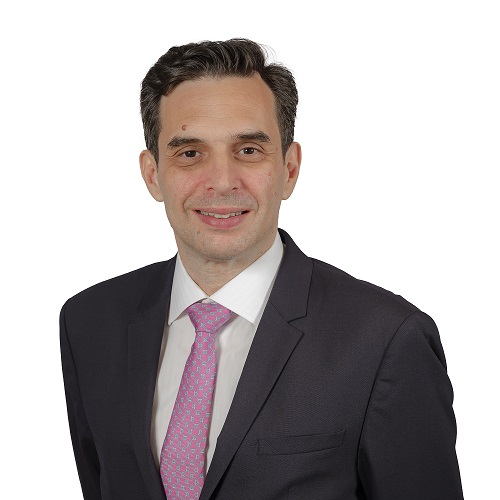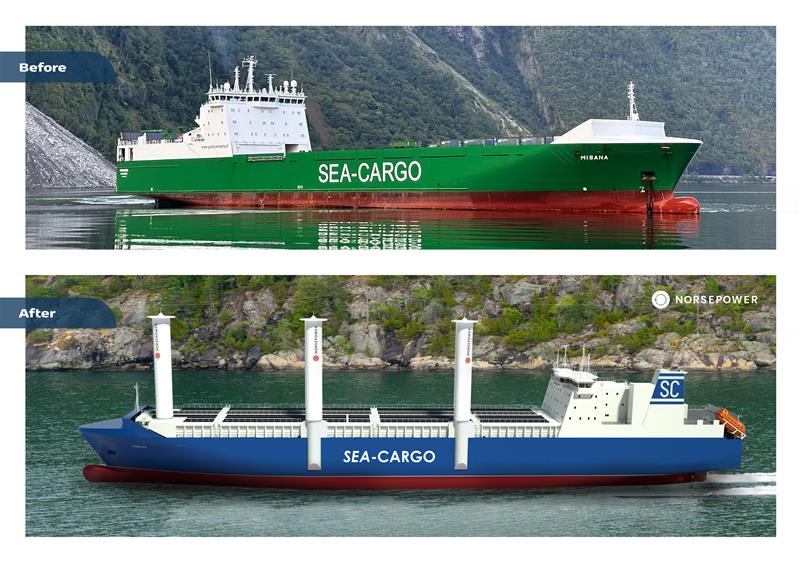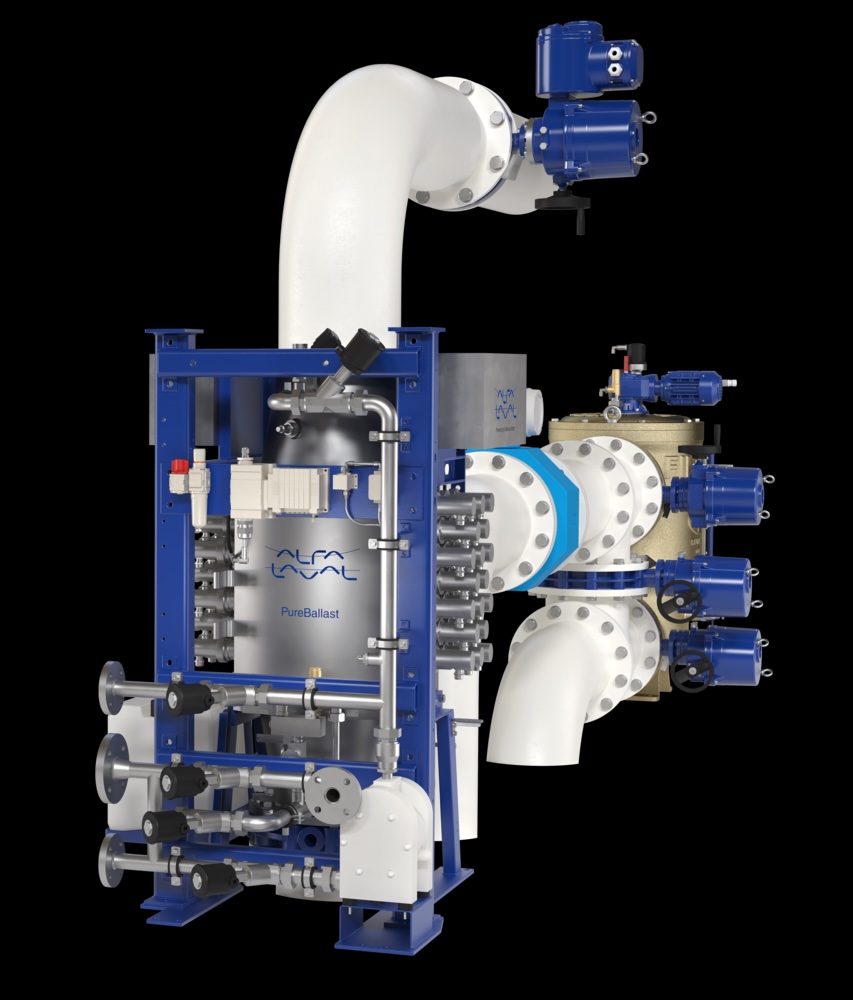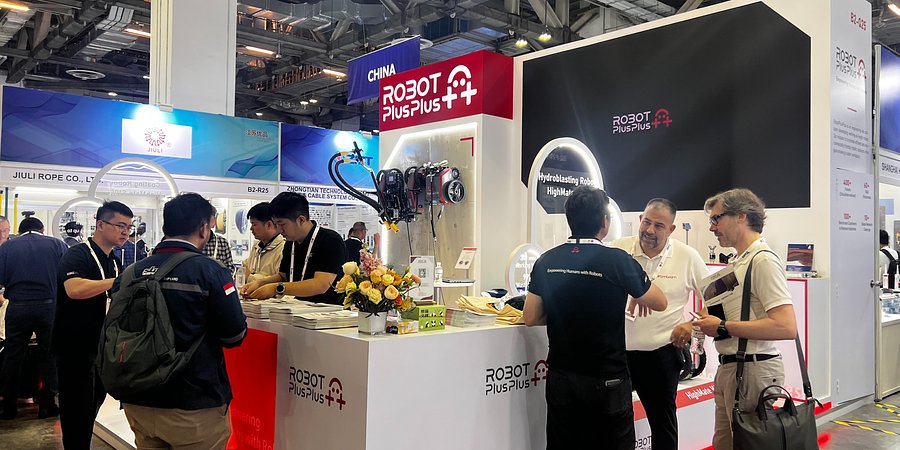Wallem has been tailoring ship management services to owner needs for 120 years, but recent shipping history has required a full mobilisation of its skills to support customers through the challenges of labour shortages, digitalisation and decarbonisation.
Nevertheless, Wallem Managing Director, Ship Management, Ioannis Stefanou, says that “trust and partnership” between ship owner and manager remains one of the best foundations for overcoming any challenge that society, technology or the regulators can devise.
Wallem Managing Director, Ship Management, Ioannis Stefanou
“Owners give their vessels to a third-party manager so they can focus on their core competence of managing their vessels commercially, while the manager specialises in operating the ships efficiently and safely,” says Stefanou.
Smaller owners, in particular, face a growing challenge in just keeping up with regulatory compliance and increasing requirements for industry-wide standards, Stefanou observes.
“But when we partner with an owner, we don’t just manage their vessels; we also offer consultancy advice and other added value services to take care of what are very expensive assets.”
Crewing concerns
Crewing is probably the most important element of ship management and, here Wallem has a strong tradition for best practice and a deep pool of experienced and skilled seafarers, says Stefanou.
Using a manager relieves owners from having to build inhouse resources for crewing, allowing them flexibility whenever they buy or sell ships. Managers can also focus on building expertise across the crew pool, so that owners know that fully trained seafarers are coming aboard their ships in an ever-more demanding regulatory environment.
“We have been in the business for a long time and have a very strong relationship with local shipping communities in the countries in which we operate. Our retention rate is high, at over 90%, and we have generations of seafarers sailing with Wallem vessels.”
But sourcing and retaining seafarers with the skills needed for the future is an industry-wide concern, he acknowledges, even though “it will be a long time until we have autonomous vessels roaming around the seas”.
New skills are required as digitalisation spreads through shipping, and Wallem has an in-house saying that “the ships of the future will not be managed by the managers of the past”.
“I don’t particularly buy the idea that there is a technology predicament where shipping is concerned. The young generation of seafarers are tech savvy and computer skills come naturally to them.”
In fact, Stefanou is confident young people come with many of the skills that are being sought to manage the ships of the future almost built-in, while older people might struggle.
To make sure hearts and minds are engaged at the earliest stage, Wallem participates in the Adopt a Ship scheme, targeting elementary school children in seafaring nations as a way of making the profession more visible to youngsters.
Where existing professionals are concerned, Stefanou says that retention of skilled staff - at sea and on land - is one of the greatest challenges of modern shipping.
“The treatment of seafarers is far from ideal in certain regions and countries, so there is a lot of work to be done to attract people. And once attracted, it is imperative that we look out for their wellbeing, ensure they are trained and offer them ways to make progress within the company.”
Stefanou points to the high number of senior managers and directors at Wallem that started their careers 35 years ago at sea before coming ashore. He adds that Wallem has masters on ships that have been with it for 40 years.
No question on standards
“We are constantly working on maintaining a strong safety culture built on open communication, trust and training,” says Stefanou, adding that Wallem seeks to ensure all stakeholders hold the same priorities by working with owners whose charter partners themselves value reputation.
“It’s not without challenges but if it becomes too difficult, we are not shy of letting owners go, and we have done this in the past. Certain things are red lines for Wallem,” Stefanou says.
At the same time, Wallem is part of an industry which faces labour shortages at the structural level. Stefanou says that, as well as widening its geographic search for personnel, Wallem believes it can broaden the scope of talent it sources from traditional seafaring nations by embracing diversity.
“We are looking into diversifying in terms of gender because females are a very big part of the existing geographic pools of candidates that we haven’t tapped into. There can be a huge benefit if we can get more women from our traditional seafaring nations like India or the Philippines.
“These countries have the seafaring infrastructure and training centres, so it makes sense for managers to diversify there. “We are focusing a lot on bringing in female cadets and growing the number of female officers in the fleet.”
Other societal changes have also called for a timely response from Wallem, with shipping’s need to adapt to goals on decarbonisation perhaps the most pressing.
Stefanou says that the European Union’s Emissions Trading System (EU ETS), which started to come into force for shipping this year, offers a good example of how Wallem looks to add value when it helps owners to meet a regulatory need.
Decarbonisation strategies
Wallem has a dedicated vessel performance team that provides a full service for reducing emissions from vessels to cut the number of allowances owners need to buy.
“But on top of that we offer a service to navigate the regulatory framework including things like opening maritime operator holding accounts. It has been so successful that we offer this service to some owners for their inhouse vessels or even ships run by other managers.”
Taking care of the bureaucratic burden may not be a core ship management service but is an example of Wallem thinking outside of the box to provide service that goes beyond compliance, he says.
Wallem offers an in-house monitoring platform that can link with and draw information from other systems to be presented on the group’s dashboards.
The company looked at many vessel performance platforms and can recommend those it thinks work best but has invested in the capacity to work with whatever systems owners have implemented across their fleets. It is about “being agile,” Stefanou says.
Wallem works with all the oil majors, as well seeking top scores from RightShip, and is currently implementing an enhanced service for vessel owners covering the SIRE 2.0 tanker risk assessment and inspection system .
“We are confident we can perform as we have invested heavily. SIRE 2.0 is a resource-demanding programme, and we are still working a lot on training our seafarers, especially in what we call behavioural competencies.”
Significant preparatory work is required before inspections are carried out on tankers and Stefanou says the programme will be a big change for the industry. “It is an area that I believe many owners will need guidance and assistance from managers”.
The question of which deciding future alternative fuels, whether it be ammonia or methanol, to go with when ordering new vessels is a current problem for ship owners to work out. But using the new greener fuels safely will become an issue for managers as those vessels are delivered.
Stefanou points to the success Wallem has had in taking over its first dual fuel LNG vessels last year, with the number in Wallem’s hands set to increase to a dozen by the end of the year.
“We are training our seafarers and our shore-based team for dual fuel vessels and looking into the added value that a company like Wallem brings with the knowledge we have gained from exposure to varied technologies used by our principles. It means we have an idea of what works or doesn’t in any situation.
“We need to be ready to manage whatever fuels or vessels that might come. In Wallem we always try to think of ourselves as the in-house technical team of the owner.”
Wallem is not the largest ship manger on the block, but it is a leader in specific fields – such as car carrier management. But Stefanou said there is a limit to how far economies of scale in ship management can be pushed with company size.
“As our longevity demonstrates, we are big enough to be competitive, but small enough to be able to offer a tailor-made focus and service. That’s very important.”
source: Wallem
The opinions expressed herein are the author's and not necessarily those of The Xinde Marine News.
Please Contact Us at:
media@xindemarine.com


 Sea-Cargo and Norsepower continue their collaborati
Sea-Cargo and Norsepower continue their collaborati  Alfa Laval expands its portfolio with ultrasonic an
Alfa Laval expands its portfolio with ultrasonic an  Alfa Laval PureBallast 3 Ultra secures orders from
Alfa Laval PureBallast 3 Ultra secures orders from  RobotPlusPlus Wows Maritime Professionals with Carg
RobotPlusPlus Wows Maritime Professionals with Carg  Alfa Laval secures first contract for ammonia fuel
Alfa Laval secures first contract for ammonia fuel  GNV Tests RINA’s Machine Learning and Predictive
GNV Tests RINA’s Machine Learning and Predictive